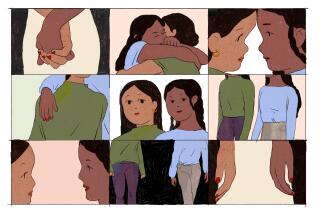Black Jews: People With Fabled Past Now Enduring a Troubled Present
- Share via
The people known as Falashas, the black Jews of Ethiopia, are of uncertain origin. It has long been said that their lineage can be traced to the people of Jerusalem who accompanied Menelik, the son of King Solomon and the Queen of Sheba, on his return to Africa long before the time of Jesus.
One of their number, a scholar who emigrated to Israel from Ethiopia in 1972, has written that they once had a state of their own, with a culture and literature as well, but that they were conquered by the Ethiopians in the late 16th Century. The Ethiopians, he said, enslaved his people, destroyed their books and confiscated their land.
For many years, scholars and rabbis in Israel disputed the black people’s account of their origins and the authenticity of their credentials as Jews. Then, on April 10, 1975, the so-called Falashas--they resent the term, which means “stranger” in the Amharic language of Ethiopia--were formally recognized as Jews under Israeli law.
They are believed to have numbered as many as half a million in the past, but by 1980, when a group of American and Canadian Jews sought to focus international attention on the plight of these people, their total was said to be no more than 28,000. And that number was reportedly being reduced by systematic killing at the hands of Ethiopia’s ethnic majority.
Last fall, the Israeli government, with the help of the United States and other governments and that of private Jewish organizations, began a clandestine airlift to move the Ethiopian Jews to Israel. By early January, when “Operation Moses” was interrupted, all but a fraction of them had arrived in Israel.
More to Read
Sign up for Essential California
The most important California stories and recommendations in your inbox every morning.
You may occasionally receive promotional content from the Los Angeles Times.













